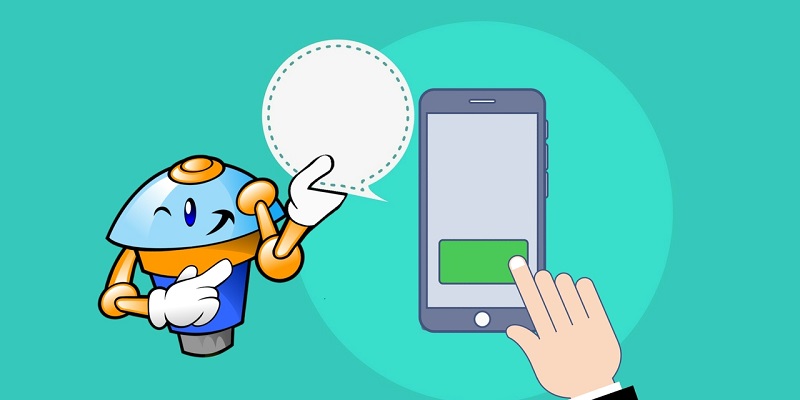In today’s fast-paced world, customers expect brands to offer exceptional experiences at every touchpoint. One critical aspect of the customer experience is quick and efficient support. Brands that can provide fast and reliable support can differentiate themselves from the competition and foster greater loyalty and advocacy. However, providing such support can be a challenge, especially when dealing with a large volume of inquiries. That’s where chatbots come into play.
Chatbots Defined
Chatbots are automated programs designed to simulate human conversations. They respond to user requests with pre-programmed responses based on algorithms and natural language processing. Chatbots can be integrated with messaging apps, social media platforms, and websites, allowing customers to interact with brands through their preferred channel.
The evolution of chatbot technology
Chatbots have come a long way since their inception, with the earliest versions being highly rigid and simplistic. Today, chatbots are powered by artificial intelligence (AI) and machine learning, making them more sophisticated and intuitive. With the help of AI, chatbots can understand and interpret natural language, recognize user intent, and provide contextualized responses based on previous interactions. They can even learn from the information provided by customers and adjust their responses accordingly.
The Personalized Assistance Provided by Chatbots
One of the standout features of chatbots is their ability to provide personalized assistance around the clock. They empower customers to receive instant support without having to wait in lengthy queues or deal with frustrating automated phone systems. Chatbots can gather and analyze data on customer preferences, behaviors, and interactions with the brand, providing insights that can enable more personalized assistance and tailored recommendations.
The Benefits of Instant Support Without Lengthy Queues or Frustrating Phone Systems
Chatbots can significantly reduce customer wait times, ensuring that they receive prompt and reliable support whenever they need it. They can handle multiple inquiries simultaneously, reducing the pressure on human agents and freeing them up to focus on more complex issues. Moreover, chatbots can provide support 24/7, thus ensuring that customers can receive assistance even outside of regular business hours.
Efficiency: Chatbots vs. Human Agents
Unlike human agents, chatbots can handle an unlimited number of inquiries simultaneously, making them incredibly efficient. They can sort and prioritize inquiries based on urgency and complexity of the issue, ensuring that customers receive assistance in a timely and non-disruptive manner. Moreover, chatbots can eliminate the risk of human error, ensuring that responses are consistent and accurate.
Chatbots as Invaluable Assistants to Human Agents
Chatbots aren’t here to replace human agents. Instead, they serve as invaluable assistants, empowering agents to deliver enhanced customer support. By handling routine inquiries and basic procedures, chatbots can free up human agents to focus on more complex and emotionally charged issues. This can lead to greater job satisfaction and employee retention, as agents can feel more fulfilled in roles that require them to use their expertise and empathy skills.
Confidence-building effects of consistent, reliable, and prompt support
By providing consistent, reliable, and prompt support, chatbots can instill confidence in consumers that their concerns are being heard and addressed. Customers tend to be more loyal to brands that prioritize their needs and are transparent about the problems they face. Chatbots can leverage data to provide contextualized responses that address customer concerns and predict their future needs. This can lead to greater customer satisfaction and advocacy, ultimately driving revenue growth for the brand.
Personalization: Leveraging Chatbot Data for Better Customer Experiences
Chatbots can gather and analyze vast amounts of data on customer preferences, behaviors, and interactions with the brand. This data can be used to personalize future interactions and offer targeted recommendations, making customers feel valued and understood. Brands can use this data to identify patterns and trends that indicate customer pain points, and identify opportunities for improvement. This can lead to a more empathetic and customer-centric culture, ultimately driving greater loyalty and positive word of mouth.
The future of chatbots and AI technology in enhancing customer experiences
As AI technology continues to advance, we can expect chatbots to become even more sophisticated and intuitive, enhancing the customer experience further. We can anticipate chatbots becoming more conversational, empathetic, and contextually aware, bridging the gap between humans and machines. Brands can leverage chatbots to create more immersive and personalized omnichannel experiences that meet customers where they are and provide them with relevant and valuable information.
Customer experience is a critical component of business success, and chatbots are becoming an increasingly vital tool for brands to deliver fast, reliable, and personalized support. However, it is essential to strike a balance between human and AI agents. While chatbots can be incredibly efficient, they cannot replace the human touch and emotional intelligence that human agents provide. Brands should aim to combine the best of both worlds, empower human agents with chatbots, and leverage chatbot data to create more empathetic and engaging interactions with their customers. By doing so, brands can create meaningful connections with their customers, leading to greater loyalty, retention, and revenue growth.

